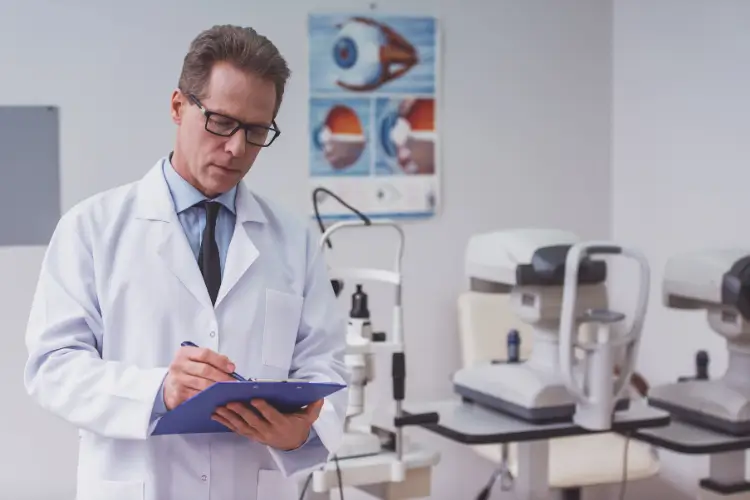Visiting an ophthalmologist for the first time can be overwhelming, but understanding what to expect can help. Ophthalmologists are doctors who specialise in eye and vision care. They diagnose and treat various eye conditions. In this article, we will take you through what to expect during your first ophthalmology appointment.
Understanding Ophthalmologists
As mentioned before, Ophthalmologists are trained to diagnose, treat, and manage eye conditions. They are trained to handle all aspects of eye care, from basic vision problems to complex surgical procedures, ensuring comprehensive care for all eye-related concerns.
Here are some of the eye-related conditions that Ophthalmologists treat:
- Cataracts
- Glaucoma
- Strabismus (squint)
- Amblyopia (lazy eye)
- Retinal problems (e.g., detachment, bleeding)
- Intraocular inflammation
- Corneal diseases
- Macular degeneration
- Eye injuries
- Infectious eye diseases
- Diabetic retinopathy
- Rare eye conditions like hemolacria (bloody tears)
Keep these things in mind before your appointment
- Note Symptoms: Track issues like blurry vision, dry eyes, or eye pain.
- Prepare Medical History: Include past eye conditions and chronic illnesses such as diabetes or high blood pressure.
- Carry Eyewear: If you wear glasses or contact lenses, carry them for examination.
- Write Down Questions: Prepare any questions or concerns about your eyes or vision.
Whether you are visiting the best eye doctor in Pune or any other city or a general physician, keeping these points in mind will help your doctor diagnose your condition accurately.
What to Expect During Your First Ophthalmology Appointment
When you arrive at the eye hospital in Pune or any other city or an eye clinic, you will first go through the check-in process, where the nurse or other support staff will ask you about your medical history, current medications, vision concerns, lifestyle and family history. Then, a technician will conduct tests like:
- Visual acuity test: Determine how clearly you can see the smallest letters or symbols.
- Eye pressure test (Tonometry): Measures pressure inside your eyes.
- Pupil dilation: Eye drops dilate pupils to allow better examination.
- Refraction test: Determines prescription strength using a phoropter.
- Optical coherence tomography (OCT): Non-invasive imaging of the retina.
- Slit-lamp examination: Examines the iris, cornea, lens, retina, and optic nerve.
- Corneal topography: Maps the outer eye structure.
- Intraocular pressure (IOP): Measures pressure within the eye.
After the tests, you can visit the doctor. Remember that not everyone visiting an ophthalmologist needs to take these tests. Your ophthalmologist will determine the appropriate tests based on your symptoms, medical history, and overall health.
If you’re concerned about your eye health, contact the ophthalmologists today.




